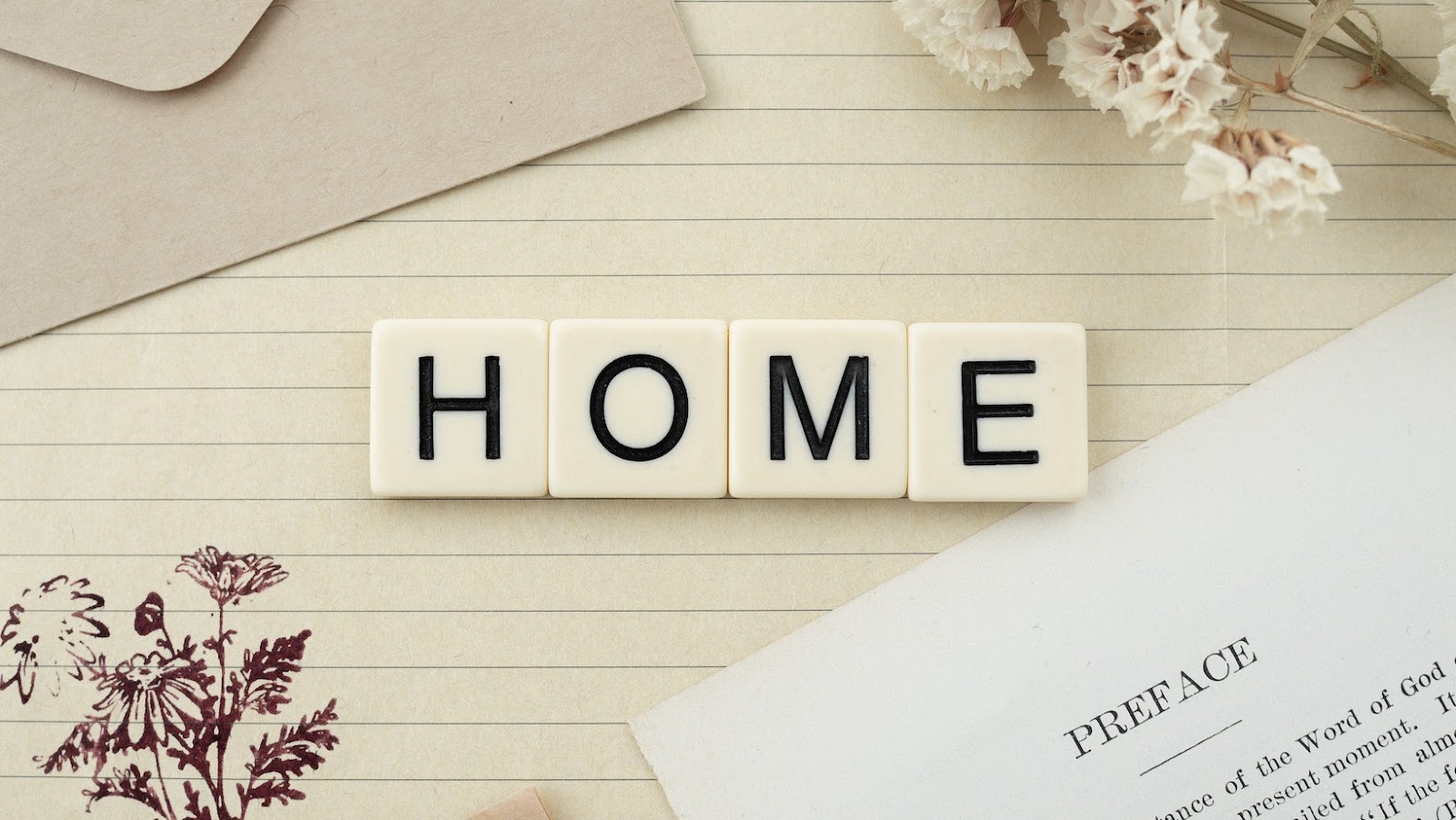To become a Scrabble pro, you must master the game’s vocabulary, know the two-letter words, learn high-scoring words, and practice regularly. Knowing the right vocabulary will help you form words quickly and efficiently during gameplay. Learning the two-letter words will allow you to form longer words and score more points. Familiarizing yourself with high-scoring words will give you an edge over your opponent. Finally, practice is crucial to improving your skills and implementing your knowledge.
Know Your Vocabulary
Exploit your Lexicon
Mastering Scrabble requires a vast knowledge of the English language. Expand your vocabulary by studying dictionaries, word lists and playing regularly. Use mnemonics to memorize word meanings and root words to determine their definitions. For extended practice, use online tools like Anagram Solvers, Word Finders, and Scrabble Cheats.
Enhance your Linguistic Aptitude
With fluency in the language comes the ability to identify letter combinations that occur frequently in words, such as suffixes like -ING or prefixes like UN-. Recognize two-letter words that can be laid down alongside existing ones and build upon multi-word structures quickly. Master uncommon letters – Q, J, X and Z – as they carry high point values.
Elevate your Game with Uncommon Words
Hone your craft by adding unusual words from various categories like science, history, literature, and geography to your repertoire. Browse through books and journals or play online games to learn niche terminology. Add jargon from particular fields like medicine or business to improve scoring opportunities.
Fear of Lacking Lexicon?
Don’t miss out on becoming a pro-Scrabble player by not dedicating enough time in expanding your vocabulary. Explore multiple domains of lexicons to alleviate the fear of not recognizing potential high-scoring options during gameplay. Play against top players to test new found knowledge at regular intervals. Become proficient in anagrams and tile distributions for gaining an upper hand in matches.
Who needs big words when you can dominate Scrabble with tiny two-letter ones?
Master the Two-Letter Words
Knowing the Importance of Short Words in Scrabble
Two-letter words can be a game-changer in Scrabble if you use them smartly. These words might seem insignificant, but they can help you form longer, higher-scoring words and increase your chances of winning. Here are three essential points to master these short words:
- Memorize: Learning all 101 two-letter words and their meanings is vital. They come into play quite often and might make or break a game.
- Placement: Place these short words strategically next to other letters to form an array of high-scoring words horizontally and vertically.
- Keep Options Open: You can link multiple two-letter words together there’s more likelihood that you will find a high scoring word combining with other available tiles on your rack.
Short Words can shift the Balance of Power
One thing is knowing how to use two-letter words; however, utilizing them effectively can be the difference between winning and losing. Learn how these tiny powerhouses fit together naturally alongside higher value letters instead of using them as fillers for low-value tiles.
Pro Tip:
Use online resources such as Scrabblesolver.io for helpful word lists, anagram generators, and stat trackers; this service packed site makes it significantly simpler than ever for new players or seasoned professionals.
Get ready to impress your opponents and strike fear into their hearts with these high-scoring words that will leave them Scrab-bled!
Learn the High-Scoring Words
If you want to master Scrabble, understanding the most valuable words is essential for achieving high scores. Here are some tips on learning words with high point values.
- Uncommon letters: Familiarize yourself with words containing rare letters, such as Q, J, X, and Z. They carry a higher value and can increase your score significantly.
- Prefixes and suffixes: Learning common prefixes and suffixes such as Re- and -ing can help you build multiple words by adding them to existing ones.
- Two-letter words: Memorizing two-letter words like Qi and Xu can help you form longer words while simultaneously gaining points.
- Phony Words: Learn about illicit ‘phony’ words that use acceptable Scrabble letter combinations but don’t have any real meanings. These phony words will boost your score but cannot be used in everyday conversation.
- Word Compounds: Use word compounds to create longer or ‘bingo’ words names formed by combining two separate words like ‘cat’ + ‘walk’ = ‘catwalk’.
- Palindromes: Recognize palindromic word endings like ‘-edde-‘ or ‘-irri-‘ that can assist in building new four-lettered combinations.
To take your game up a notch, practice regularly and aim for deep consolidation of these strategies. Becoming an expert player isn’t just about memorizing long lists of unfamiliar terms; it also involves evolving your gameplay strategy based on the board’s configuration.
Keep practicing these tips until they become second nature during play to surprise your opponents with unexpected moves!
Scrabble may not build muscle memory, but it will build your vocabulary – just don’t blame us when you start using words like ‘zax’ in everyday conversations.

is im a scrabble word
Regular Scrabble practice leads to perfect gameplay, increasing vocabulary and strategy skills beyond the novice level. Consistent exposure to the letter tiles hones an aptitude for constructing words and recognizing high-value opportunities. In addition, one can refine their tactics by playing against opponents of different skill levels.
To elevate your Scrabble game, incorporate various strategies that can enhance your ability to maximize points while minimizing risk. Consider memorizing common pre-fixes and suffixes, playing shorter words that can connect with existing ones on the board, or saving higher-scoring letters like ‘Q,’ ‘Z,’ or ‘J’ for use with premium squares. Employing cognitive flexibility and thinking outside of inherent assumptions regarding word arrangement will lead to more inventive play.
Expert players also recommend studying unfamiliar two-letter words as most are illegal in everyday language used regularly in gameplay; they can be highly advantageous when well-placed on premium squares or used as bridges between longer words.
Pro Tip: Always remember the importance of balance between holding onto good letters for high-scoring opportunities and using them effectively in creating a valuable word combination on the board.
IM may not be a word in the dictionary, but it describes how you feel after playing a triple word score with your Q.
Is “IM” a Playable Scrabble Word?
You need to know which words are playable on the board to play scrabble like a pro. To do that, this section explores the possibility of the word “IM” being a playable word in Scrabble, along with its dictionary definition. Additionally, this section will go over some strategies to use “IM” in your gameplay and help you recognize the ideal situations when you can take advantage of it.
Scrabble Dictionary Definition of “IM”
“IM” is a valid word in the official Scrabble dictionary. It is a two-letter word that is worth four points. “IM” can be used as an abbreviation for “instant messaging” or as a variant form of “I’m.” In Scrabble, it can be useful for players to get rid of unwanted letters or create new scoring opportunities, especially when combined with other words.
The use of two-letter words in Scrabble is essential for high-scoring gameplay. Although relatively short and common, they offer strategic value by taking advantage of board spaces and setting up more valuable words horizontally or vertically. For instance, players can combine “IM” with vowels like A, E, or O to create simple three-letter words such as AIM, IMP, or AMI.
Interestingly, despite its usefulness in Scrabble gameplay, the abbreviation “IM” has complex origins. The first recorded use of instant messaging dates back to the mid-1960s when people used primitive computer systems for real-time communication. However, widespread usage only happened decades after the rise of online chat applications and social media platforms like AOL Instant Messenger (AIM), MSN Messenger or WhatsApp. Today, “IM” is an accepted part of everyday language and internet culture beyond gaming vocabulary.
Unleash your inner rap artist and drop a tile on “IM” for some serious points, just don’t forget to add a mic drop after.
Strategy for Using “IM” in Scrabble
IM is considered a playable word in Scrabble but requires strategy to maximize its potential. One wise tactic is to save IM for high-scoring tiles like Triple Word Score or Double Letter Score. Remember that utilizing IM and other two-letter words can also help rack up points.
Here are six key strategies for using IM in Scrabble:
- Use IM as a prefix or suffix whenever possible.
- Pair IM with high-value tiles such as Q, J, X and Z for maximum bonus points.
- Look for opportunities to form compound words with IM, including hyphenated phrases like ‘re-imagine’ or ‘IM-buing’.
- Study common two- and three-letter words that contain I or M to combine with IM for double-digit point scores.
- If you’re struggling for space on the board, consider using ING instead of IM as a strategic alternative.
- Keep some of the more uncommon vowel letters on hand (U and Y) to pair with the commonly used letters I and M.
Remember that two-letter words can help remove spare vowels from your rack. As with any strategy game, it’s all about making intelligent moves that will give you an edge over your opponent.
It’s worth noting that although “IM” has been allowed in Scrabble since 1978, it wasn’t always so straightforward. The official dictionary briefly removed five two-letter words in 1982 amid rumors of cheating at major tournaments. Thankfully, common sense prevailed and they were added back shortly after. Today, “IM” remains a viable tactical option for building your score in this classic word game.
Knowing when to use ‘IM’ in Scrabble is like knowing when to use a sword – you only bring it out when you’re ready to destroy your opponent’s confidence.

Knowing When to Use “IM”
Understanding the Proper Usage of ‘IM’ in Scrabble
In Scrabble, one must clearly understand the words that are allowed to be played. The use of “IM” is a controversial topic amongst Scrabble players, leading them to question whether it’s a playable word. The answer is yes – but with certain conditions.
First, “im” is an abbreviation for various command forms like ‘immerse’, ‘import’, ‘imply’. Therefore, it cannot stand alone as an independent word on the board. It has to be accompanied by another word for it to be accepted.
It’s important not to overlook the difference between two-letter words and abbreviations in this context. Abbreviations are strictly non-playable on the Scrabble board, while two-letter words can enhance your score when played at strategic positions.
Interestingly enough, SCRABBLE® was derived from Criss Cross Words – a game created by Alfred Mosher Butts, which suffered low market demand until he collaborated with James Brunot to introduce SCRABBLE® in 1948.
Overall, it’s important for players to thoroughly understand all allowable Scrabble words and never hesitate to consult the dictionary or seek clarification during gameplay.
Improve your Scrabble game: cheat, bribe, or marry a dictionary.
Tips for Improving Your Scrabble Game
To improve your Scrabble game, use hooks to expand words, play defensively, pay attention to your opponent’s tiles, plan, and look for multiple word opportunities. These strategies will enhance your gameplay and help you become a better Scrabble player.
Use Hooks to Expand Words
Expanding Words with Hook Tiles in Scrabble
With the game of Scrabble, players must constantly think ahead and find ways to use their tiles strategically. For example, one way to maximize points is by using hook tiles. When placed before or after a word already on the board, hook tiles can expand words and create longer, higher-scoring options.
Here’s a 4-Step Guide:
- Look for opportunities: Scan the board for words with two or three letters matching one of your tiles.
- Add your hook tile: Place your new word on the board by attaching it to the existing word with a hook tile before or after.
- Make sure it’s valid: Double-check that both the original word and your added word are valid plays.
- Rack up points: Earn points for both words – the original and expanded version.
It’s important to note that while using hooks can be advantageous, players should also consider whether it opens up opportunities for their opponent.
In Scrabble tournaments held between 2015 and 2018, Nigel Richards became world champion twice using hooks effectively in his gameplay and other strategies.
By using hooks in Scrabble, players can increase their chances of earning more points and winning the game.
Remember, in Scrabble, the best defense is a good offense…and a dictionary.
Play Defensively
When playing Scrabble, it’s important to be cautious and think ahead to protect your score. A defensively-minded player should aim to control the board’s center and limit their opponent’s chances of earning high-score plays. One excellent tactic is using short, high-value words like “ax” or “qi” while also keeping an eye on bonus squares so your opponent cannot take advantage of them.
Another good approach is avoiding certain letters that could give your opponent a chance to play even higher-scoring words. For instance, if you hold a tile for the letter “p,” consider playing it as soon as possible, since it allows other players to add “-ing” or “-er” suffixes onto many pre-existing words.
Finally, do not forget about parallel plays, allowing you to add a word across an existing word while forming another word vertically along the same line. This technique can provide more than one opportunity for points and give you the ability to impede your opposition’s scoring chances.
One time this came in handy was during a charity tournament where I had allowed my guard down during the final round. I had been steamrolling my competitors until then with well-placed parallel plays and defensively-tuned moves; however, my final opponent was unlike any other I’d faced. She played shrewdly by latching onto my previously built-up parallel boards with clever two-letter words like “ed” and “quo.” Though I ultimately lost that match, her impressive technique taught me how critical defensive thinking truly is in Scrabble strategy!
Keep your friends close and your opponent’s tiles even closer – pay attention to their moves and you’ll be swooping in for the triple word score in no time.

Pay Attention to Your Opponent’s Tiles
To gain an advantage in Scrabble, observing your opponent’s tiles is crucial. Here are some ways to do it effectively:
- Glance at their tiles whenever they draw or swap them
- Observe their facial expressions and body language
- Notice where they place their tiles on the board
- Try to deduce the letters they have by looking at the words they form
- Avoid showing any reactions to the letters you draw
- Keep track of the number of each letter in the game via patterns on the board.
While observing your opponent’s tiles can be helpful, remember that it is not a foolproof strategy. Factors like luck and skill also play a significant role in winning Scrabble.
Once, during a game of Scrabble, my opponent purposefully placed her tile close to mine, hoping that I would accidentally reveal my letters. However, I was aware of her tactics and did my turn without disclosing my hand.
Scrabble is all about planning, unless you’re one of those lucky people who always pull a Q and X simultaneously.
Plan and Look for Multiple Word Opportunities
It’s smart to think ahead and discover multiple word opportunities while playing Scrabble. By anticipating potential plays, players can earn higher scores by utilizing bonus squares and strategically forming two or more words simultaneously. This technique requires a sharp eye for word combinations and understanding the game board’s layout.
One tip to identify multiple word opportunities is using a suffix or prefix that can potentially form another word. Players should consider both horizontal and vertical placements of their tiles, increasing their chances of spotting different letter combinations that can form two or more words simultaneously.
Another way to plan is by studying the game board and keeping track of prime spots where multiplier squares are present. Keeping an eye out for double letter, triple letter, double word, or triple-word squares can help players devise new words alongside previously played words on the board.
It’s essential for Scrabble players always to keep in mind the option of forming multiple words, even if it means scoring fewer points than a one-word play. The goal is to develop control over as much space on the board as possible through efficient use of letters.
According to expert Scrabble player Caleb Duyvesteyn, “Planning Ahead is best done throughout a game rather than just when decided upon making a ‘big’ play at some point.”
Looks like it’s time to hit the tile rack again, because let’s face it, in Scrabble, a triple letter score is just as rewarding as finding a matching sock in the laundry.
Conclusion and Final Thoughts
As we wrap up our exploration of Scrabble, it’s clear that proficiency in the game requires both strategic thinking and a broad vocabulary. While memorizing lists of playable words is one way to improve, it’s important to also focus on understanding letter combinations and their potential placements on the board.
Additionally, utilizing certain tools and resources, such as online word finders, can aid in your gameplay. And don’t forget to practice regularly with friends or family members to hone your skills.
A lesser-known tip for enhancing your Scrabble abilities is paying attention to the game tiles. You can significantly boost your score by strategically placing tiles with higher point values on double or triple letter/word score spaces.
With these tips and techniques in mind, anyone can learn how to play Scrabble like a pro in no time. So grab a friend and challenge them to a game – who knows, you might even discover some new favorite words along the way!

